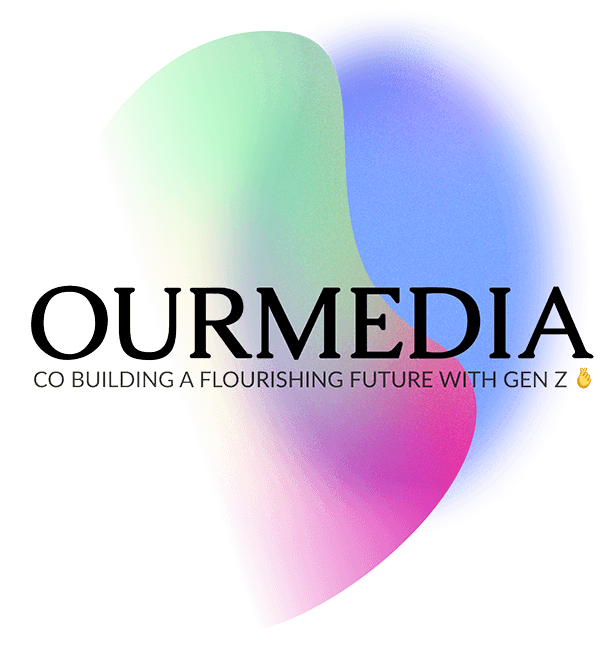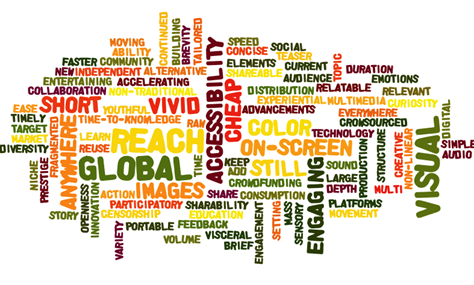April 8, 2016
Santa Clara Convention Center, Santa Clara, CA
ATTENDEES
- Dave Toole- tech industry veteran; incubator founder; found of MediaMobz
- Laura Guzman – marketing / operations, business storytelling for getting everyone on the same page; agricultural & science communications / PR / marketing
- Kendall Haven – environment & science communications; science of storytelling
- Jennifer VanSile – film, screenwriting teacher; author of “Cinematic Storytelling”
- Jason Wilmot – communications for Stanford, MediaX U
- Richard Okumoto – teacher, pursuing doctorate in Digital Storytelling
- Lily Chung – engineer, consulting @ Deloitte, teach clients “art of storytelling” (2-day course) (“people remember how you make them feel, not what you tell them”)
- Pam Reed – former communications for Applied Materials; communications for Cisco
- Patty Zuboff – TV / video producer; former News Travel Network; Plutonic TV; interest in democratization of video
- Jay Durgan – MediaMobz; formal global entertainment marketing
- Raime Heineken – Symantec communications; marketing for mobile app startup
- Dan Gato – MediaMobz; broadcast communications @ ESPN
- Neil Burns – faculty U of TX Austin and professor @ UCSF; former NASA research team; director of marketing at Honeywell; started ad agency
- King Guthro – attorney; Digital Ocean nonprofit
- Davis Maston – grew up in Studio City; chairman of Chuskin; science of communications; on board of Quantified Self Labs and Quantified Communications; project called “drop dead happy”
- Martha Russell – Exec Dir, Stanford U MediaX;
- Kelly Palmer – education technology masters; learning & development for big companies; chief learning officer of LinkedIn; how learning can impact happiness at work and in life, and how to convey through storytelling
- Ryan Richardson – run training company, doing training in storytelling; storytelling curriculum for corporations
- Loreta Tarozaite – journalist, news anchor / reporter; video producer
- Benjamin Wong – venture capitalist, serial startup-ist; how to tell entrepreneurial stories; running consultancy for mobile apps, bio med sites, other products launching
- Miles Lee – MediaMobz, video editor; music production
- Angela Simoes – high tech PR, Autodesk; podcasts (including “From Quantified Self to Qualified Self”)
Breakout Session (hosted by Martha Russell)
Team Breakout 1: What were the elements (gold standards) of best story you ever heard?
- emotion
- personal connection
- structure
Team Breakout 2: What are the gold standards of a digital story?
- same as story
- succinct
- shareable
Group Exercise 1 (post-its): What is it about digital that interests you?
Group Exercise 2: What concerns do you have?
- volume
- overstimulation
- lack of control
- reduced impact
- longevity
- quality
- audience low expectations
- responsibility / ethics
- replacement of human self consciousness
- Machine intelligence
Group Exercise 3: What insights would you like to have that would help you with what you would like to do with story?
- How do we source stories?
- Identify the elements of engagement & empathy on the part of the audience – what works, what doesn’t, what makes a good story?
- What attention / retention hooks, what pulls people in and makes them hold onto it?
- What universal cultural symbols can we use?
- What is the business model?
- What distribution models?
- Effect of changes and expectations (generational?) or are our belief in changing expectations driving
- Influence of content
- What content is hard wired? (i.e., Cultural interests in specific genres? Religious / universal stories?)
- Are there any real negatives of digital storytelling? Or is just how / where you use it?
- Why do they want story? how did they get to the story?
- How to get funded?
- How to be better collaborators?
- Anticipating what’s next in storytelling? (i.e., what’s after VR…?)
- Replication of the story
- How to create ROI?
- AI – can it really have the
- Embedded systems + how embedded in us
- How we use digital storytelling to help people change their behavior, incite action, achieve different actions
- How do you get the data, data analytics
- How to get fUnded
- What’s most liked / shared / memorable? (leveraging data)
- What are exiting new ideas?
- Honest from the client
- How can my story stand above the rest?
- What is considered a great story?
- How do you get through anywhere?
- What is the impact of new tech for storytelling on learning / understanding, experiencing the story, contributing to the story, and inciting action?
- How can we centralize our stories?
- How can we generate action?
- Effect of delta in expectations
- Improved neural signature for story reactions
- East of engagement
- Dwell time
- Replication
- ROI
- Audience
- Source
- Purpose
- Connection
- Distribution
- Library of content
- How to change behavior
- How do you know / define success up front?
- Behavioral analytics
- Is it one-and-done? What’s the shelf life / longevity?
- How do I build / keep anticipation in very short stories?
- How much do words matter over visual / audio in order to resonate?
- Storytelling using technology
- Storytelling to help engineers / scientists communicate
- “Architecture” of storytelling
- Intercultural communications
- Competence
- Foundation for digital storytelling
- Universal cultural communication / symbols
- Direction of storytelling as a learning tool
- Best attention / retention hooks
- What is our purpose?
- Construct a body of knowledge (domain knowledge + domain network)
- Who downloaded / listened to / read
- Why did they want the story? (i.e., social networking, googled)
- Did they want to keep the story
- Storytelling structures
- Source of stories
- Identifying elements of engagement / empathy on the part of the audience
- Managing method of the telling itself
- Importance of purpose
- Retention, connectivity, duplication / disseminations
- Changes in expectations? Or is it our believe in the need to cater to their changes in expectation?
- Motivation – audience v. teller-driven
- Collaborative potential
- Durability
- Tell me where & when and who the audience is
- What is the best channel to reach audience
- How can I scale?
- How can I tell a story interesting enough to capture attention and be memorable? Can I make them act?
- Source good, authentic stories
- Attention / retention hooks
- Why did they want story?
- Better collaboration
- Business model
- Changing belief of expectation
- Hardwired content
- What is the most important element in a digital story?
- how do you target an audience when you don’t have access to them?
- What are the negatives of digital storytelling?
- What is the true “importance” of quality of the media?
- Behavior not seen as learning
- Adopting new technologies (i.e., VR, drones)
- Helping tech businesses find their stories
- Within all the complexity, how do I keep it simple?
- How do we make science relevant?
- How do we help people discover the science all around them?
- How do we use digital storytelling to help people change their behavior?
- How do you identify the path to your audience?
- How do you build stories worthy of sharing?
- How do you surface stories with purpose?
Group Discussion: What could a group of people like this do for digital storytelling that would be useful?
- Having regular conversations like this (not online; presence / F2F important)
- or telepresence – set up in centers so we can collaborate with people in other locations / countries, etc
- Sharing best practices, collaborating on activities
- Should we construct a body of knowledge / library
- Form a domain network to accelerate all the work of the network
- What skills do we need from people in the network?
- psychologists
- experts in story construction
- social / behavioralists
- Clarification / contextualization
- ID individual areas and dive into these areas
- Support group – network to brainstorm with or go to with help
- Invite NGO’s or other organizations struggling with their message (1x/qtr come in and help)
- develop pitches / stories
- ID a cause or a specific problem to solve
- e., how do we get more girls into STEM
- What people are reading and seeing
- get top 5 books, podcasts, videos, resources, etc
- Share everyone’s contacts after
- What skills do we need from people in the network?
Summary Thoughts: Martha
Enduring aspects we identified
- Engagement
- Retention
- Inspire to influence
Novelty that digital brings
- Time
- Location
- multi sensory layering can create a difference sense of presence
Uncharted territory
- Distribution
- Models
- Business models
- …and how all these will come together
Standards that this group can develop
- The craft
- The control
- Desire for establishing a sense of excellence
- Share what we know
- Fill in the gaps
- Collaborate with one another
ADDITIONAL THREADS (DAVE TOOLE)
- Millennials not in the room today, but need to be
- they don’t consume media / messages / stories in the same way…how do we address this?
- How do we tell stories with purpose?
- In the last 2 days there was more content created than in the history of the planet….how do you find stories that resonate btw all the noise?
- So many forms of storytelling…consider music
NEXT STEPS
- Come back together in July
- Think about other people who might benefit from / contribute to this conversation
- Ponder the questions brought up today…
- In 2020 what are the stories we will be telling?
- Do our stories have purpose?
- How can we shift the way we tell stories?
- What are the tools we can use?
- Assemble a location to collaborate
- Post reading / viewing / content lists


